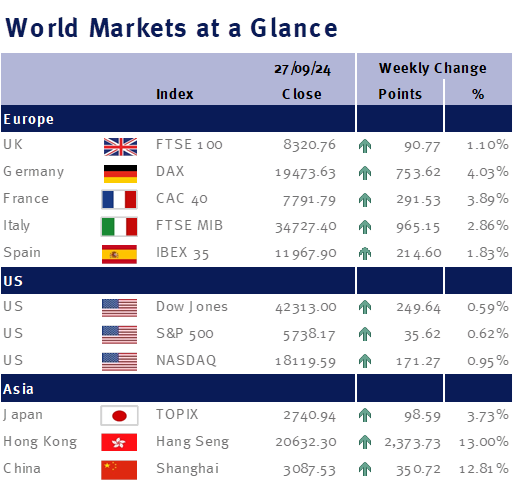This week, global markets soared as Chinese stocks experienced their best performance since 2008, driven by optimism surrounding newly announced stimulus measures from Beijing. The Shanghai Composite Index surged by 12.8%, while Hang Seng Index in Hong Kong saw a 13% rise, reflecting widespread market enthusiasm following China’s economic interventions.
The People’s Bank of China (PBOC) played a pivotal role in fuelling this week’s market rally. It announced significant policy measures, including a 50-basis-point cut to banks’ reserve requirement and reductions in key short-term policy rates.
These moves, designed to inject liquidity and support China’s struggling economy, were further complemented by mortgage rate cuts and a reduction in down payment ratios for second homes.
Chinese leaders also pledged fiscal support to stabilise the property market and maintain the country’s 2024 growth target of around 5%. While specifics on fiscal spending were not provided, the strong commitment from China’s top policymakers has boosted confidence in the market, lifting hopes for sustained economic recovery. The central bank’s governor Pan Gongsheng said further easing of reserve requirements was possible this year.



